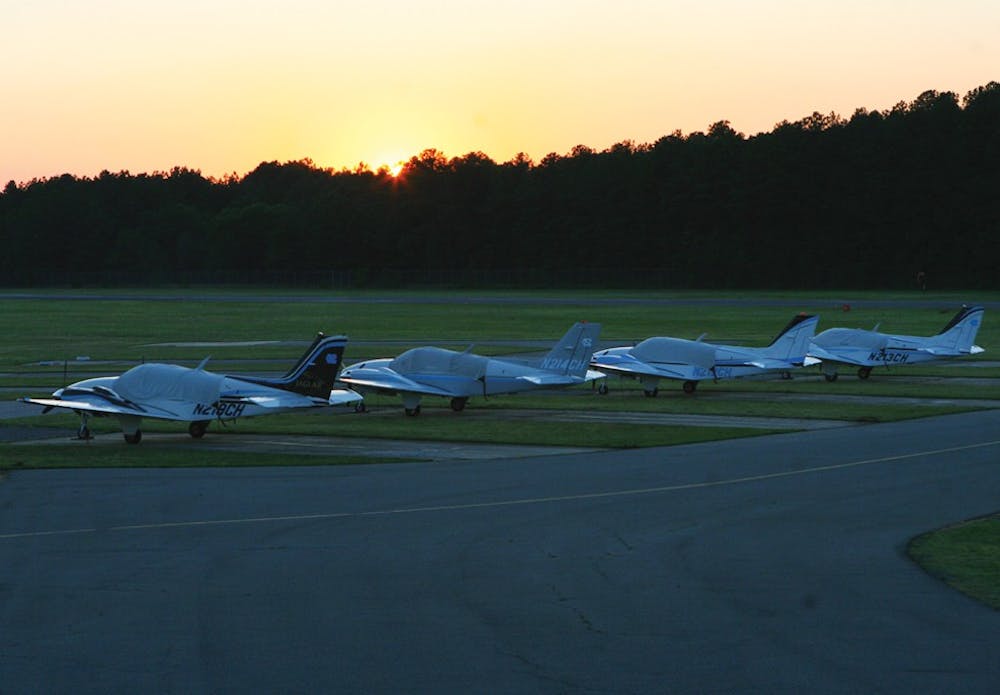Horace Williams Airport isn’t much more than a 4,000-foot runway, a few trailer-like buildings and an open field of small planes and rusty utilities.
To get in during the day, you can drive into the gravel parking lot through the open gate. At night, you can enter the passcode that’s clearly printed on the closed gate (it’s 1-1-1-1).
In an age of ironclad airport security, Horace Williams is quaint even by small airport standards.
And, only a five-minute drive from campus, the University-owned airport is 420 quiet acres at a time when UNC is relentlessly expanding on all sides.
Not for much longer.
At the end of the month, the University’s Medical Air Operations will move from Chapel Hill to the Raleigh-Durham International Airport, ending its 43-year residence and signaling the beginning of the end for Horace Williams Airport.
The move comes despite the fact that the airport, scheduled to be closed permanently to make space for Carolina North, will probably not close for at least a year.
And it has some faculty upset.
“For most of (the pilots), yes, it’s more inconvenient and more inconvenient for (medical faculty), particularly those that live in Chapel Hill,” said Dr. Tom Bacon, director of the North Carolina Area Health Education Centers (AHEC), the organization that oversees the Medical Air service.



